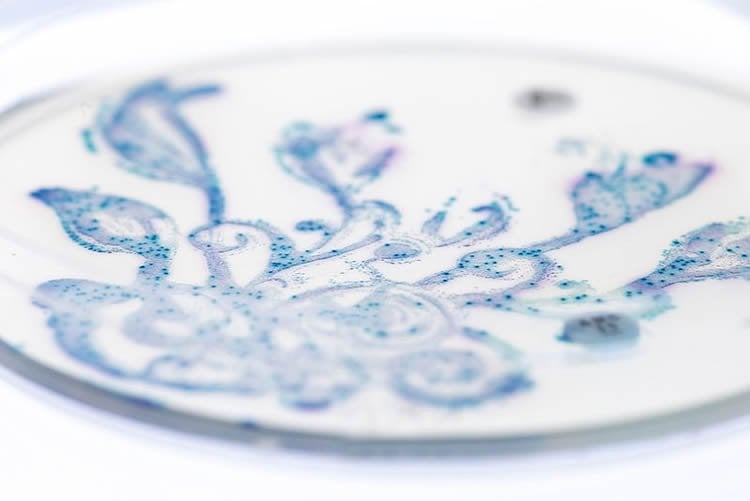Summary: According to a new study, an insufficient amount of good bacteria could have a direct link to MS.
Source: University of Iowa.
MS patients show lower levels of good bacteria.
If asked to list problems that bad gut bacteria can cause, most would likely name digestive issues: constipation, excessive gas, or diarrhea.
Researchers are now saying bad gut bacteria – or an insufficient amount of good bacteria – may have a direct link to multiple sclerosis as well.
“Every human carries trillions of bacteria in their gut (gut microbiome) and recent advances in research indicate that these tiny passengers play an important role in our overall health maintenance,” says Ashutosh Mangalam, PhD, assistant professor of pathology at the University of Iowa Carver College of Medicine.
Since the bacteria are associated with contributing to good health, Mangalam and his colleagues wondered whether those with a chronic autoimmune disorder, such as multiple sclerosis, would then have a gut microbiome that is different than the microbiome found in healthy individuals.
In a study published online today in the journal Scientific Reports, Mangalam and his team say that MS patients do, in fact, have a distinct microbiome from their healthy peers.
“Although preliminary, our data suggest that patients with MS have reduced levels of good bacteria responsible for overall benefits obtained from consuming healthy foods, such as soybean and flaxseeds,” says Mangalam, who is senior author on the study.

Mangalam and his team from Mayo Clinic – where all of the work was completed before Mangalam joined the UI in 2015 – conducted microbiome analysis on fecal samples collected from MS patients as well as healthy control subjects.
“We identified certain bacteria which are increased or decreased in the gut of patients with MS compared to healthy controls,” he says.
Mangalam says further research is needed to confirm the team’s findings in a larger patient population.
Source: Molly Rossiter – University of Iowa
Image Source: This NeuroscienceNews.com image is credited to Nicola Fawcett and is licensed CC BY SA 4.0.
Original Research: Full open access research for “Multiple sclerosis patients have a distinct gut microbiota compared to healthy controls” by Jun Chen, Nicholas Chia, Krishna R. Kalari, Janet Z. Yao, Martina Novotna, M. Mateo Paz Soldan, David H. Luckey, Eric V. Marietta, Patricio R. Jeraldo, Xianfeng Chen, Brian G. Weinshenker, Moses Rodriguez, Orhun H. Kantarci, Heidi Nelson, Joseph A. Murray and Ashutosh K. Mangalam in Scientific Reports. Published online June 27 2016 doi:10.1038/srep28484
[cbtabs][cbtab title=”MLA”]University of Iowa. “A Link Between Gut Bacteria and Multiple Sclerosis.” NeuroscienceNews. NeuroscienceNews, 27 June 2016.
<https://neurosciencenews.com/gut-bacteria-multiple-sclerosis-4574/>.[/cbtab][cbtab title=”University of Iowa”]University of Iowa. (2016, June 27). A Link Between Gut Bacteria and Multiple Sclerosis. NeuroscienceNews. Retrieved June 27, 2016 from https://neurosciencenews.com/gut-bacteria-multiple-sclerosis-4574/[/cbtab][cbtab title=”Chicago”]University of Iowa. “A Link Between Gut Bacteria and Multiple Sclerosis.” https://neurosciencenews.com/gut-bacteria-multiple-sclerosis-4574/ (accessed June 27, 2016).[/cbtab][/cbtabs]
Abstract
Multiple sclerosis patients have a distinct gut microbiota compared to healthy controls
Multiple sclerosis (MS) is an immune-mediated disease, the etiology of which involves both genetic and environmental factors. The exact nature of the environmental factors responsible for predisposition to MS remains elusive; however, it’s hypothesized that gastrointestinal microbiota might play an important role in pathogenesis of MS. Therefore, this study was designed to investigate whether gut microbiota are altered in MS by comparing the fecal microbiota in relapsing remitting MS (RRMS) (n = 31) patients to that of age- and gender-matched healthy controls (n = 36). Phylotype profiles of the gut microbial populations were generated using hypervariable tag sequencing of the V3–V5 region of the 16S ribosomal RNA gene. Detailed fecal microbiome analyses revealed that MS patients had distinct microbial community profile compared to healthy controls. We observed an increased abundance of Psuedomonas, Mycoplana, Haemophilus, Blautia, and Dorea genera in MS patients, whereas control group showed increased abundance of Parabacteroides, Adlercreutzia and Prevotella genera. Thus our study is consistent with the hypothesis that MS patients have gut microbial dysbiosis and further study is needed to better understand their role in the etiopathogenesis of MS.
“Multiple sclerosis patients have a distinct gut microbiota compared to healthy controls” by Jun Chen, Nicholas Chia, Krishna R. Kalari, Janet Z. Yao, Martina Novotna, M. Mateo Paz Soldan, David H. Luckey, Eric V. Marietta, Patricio R. Jeraldo, Xianfeng Chen, Brian G. Weinshenker, Moses Rodriguez, Orhun H. Kantarci, Heidi Nelson, Joseph A. Murray and Ashutosh K. Mangalam in Scientific Reports. Published online June 27 2016 doi:10.1038/srep28484






